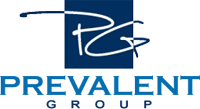Jobs, bosses, colleagues and interviewers will come and go, but connections can last a lifetime. It is imperative to stay in touch with your professional network, even while you are happily employed, because you never know when those connections may help you in your career.
1. Keep in Touch With Interviewers
It can be frustrating to make it to a final round of interviews, only to lose the position to another candidate. If you made it that far, however, it means that the hiring team saw something in you that they liked. Once you find out that you did not get the job, ask the hiring manager if it’s alright to keep in touch. Connect via LinkedIn, and check in sporadically. It is possible that their needs will change over time, and you may be a better fit for an open position in the future. It is also possible that the hiring manager will move on to another company. When she has an open position that suits you, you’ll have a much easier time getting your foot in the door if you’ve been diligent about remaining on her radar.
2. Don’t Lose Contact with Former Bosses
Hopefully, you’ve resigned from your former positions
on a good note. If you parted ways amicably with an old boss, it’s not out of the question to keep in touch. Connect on LinkedIn, and when you see your former supervisors out and about at professional events, take some time to say hello and catch up. Why? You never know where your career, or your former supervisor’s career, will go. Your old boss may move on to a new company, your old company could expand, each providing opportunities for you to return in a new capacity.
3. Follow up with Connections Made at Networking Events
People attend networking events to make connections. In order to make those connections work, you have to stay in touch. After each event, make time to sit down and email those people who made an impression on you – or those people you hope to impress. The emails should be short, but friendly and professional. Remind each person who you are and what you discussed at the event. Follow up by sending a LinkedIn invitation. Keep those people on your touch-base list and be sure to check in regularly.
4. Don’t Go Overboard
Staying in touch means sending an occasional email or placing an occasional phone call. Each point of contact should have a distinct purpose. You might attach or mention a news article about your connection’s company, or a piece of industry news they might find interesting. Don’t reach out once a week asking for a job. That is a surefire way to make yourself known as a nuisance. The point of networking is to establish professional relationships, not to hound people into doing things to further your career.
If you are actively seeking new career opportunities, the recruiters at
The Prevalent Group would love to connect with you. We are always on the lookout for talented professionals in sales, marketing, engineering and technology. As a nationally recognized recruitment and executive placement agency, we work with some of the most innovative and forward-thinking companies in the country. We invite you to visit our
job board and then
contact us to learn more about current openings and potential opportunities. We look forward to meeting you.
